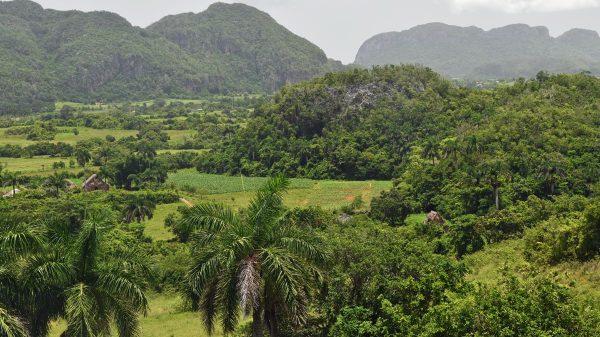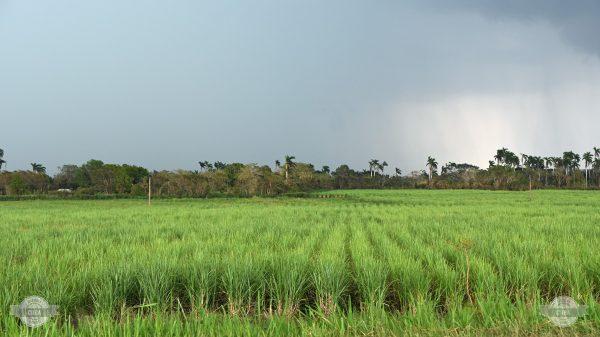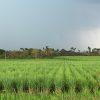Engage Cuba and the U.S. Agriculture Coalition for Cuba (USACC) released their latest analysis this week on the benefits of increasing agricultural trade with Cuba. The report on “Future Prospects for US Agribusiness in Cuba” is their second report, the earlier report having been released in March of this year. Engage Cuba, a bipartisan coalition group in Washington, D.C. and USACC are two groups working to end the embargo against Cuba.
The latest analysis outlines future “Prospects for U.S. Agribusiness in Cuba.” The report focuses on the foreseen benefits of increased agriculture exports to Cuba. Currently the US is in fifth place globally, losing market share because of laws which prevent the extension of credit to Cuba. The group is predicting the rise in tourism stats will result in an increased demand and necessity for greater food importation. The expanded need for more food imports to the Island would be of benefit to US farmers because of the geographical proximity to the Island.
Today Cuba imports about 80% of its agricultural products and that 80% is worth almost $2 billion. Cuba is importing from countries which provide financing terms. American agribusiness is now in fifth place as an exporter of agricultural commodities to Cuba. The U.S. is losing its market share to Brazil, the European Union, Argentina and Vietnam – countries which will extend credit to Cuba. Cuba currently imports rice, poultry, dairy, soy products, wheat and corn from these nations. With its logistic advantage, the US would be a natural agricultural supplier to Cuba, but the restrictions on financing and trade hinder American AG business.
Engage Cuba and USACC believe that if Congress changes the American policy restricting trade and travel, the U.S. can regain lost market share.
By removing trade barriers, six states (Alabama, Indiana, Iowa, Mississippi, Missouri, and North Dakota) stand to benefit. Rice, poultry, soy, corn, and wheat are the chief agricultural commodities these States want to export. U.S. exporters wish to be able to extend private credit to Cuba. Without Congress action to remove the trade and credit barriers, American exporters will continue to lose ground.
James Williams, President of Engage Cuba, states “The latest report shows that U.S. agribusiness is continuing to lose market share in Cuba due to our own policies that prevent U.S. businesses from extending credit to Cuba for agricultural goods. U.S. farmers and agribusiness are at a competitive disadvantage, and as a result, the U.S. has slipped in its ranking to the 5th supplier of agriculture exports to Cuba… This report shows, yet again, how congressional failure to act is not only hurting U.S. farmers who are unable to compete in Cuba’s growing market, but also Cubans who rely on imports for up to 80% of their agricultural needs.”
The report’s chief findings include:
- Alabama: Alabama is the number two U.S. exporter of poultry, with broiler meat exports making up almost one-third of the state’s total agricultural export value. As a top exporter, Alabama stands to gain from the increasing trend since 2000 in Cuba’s poultry imports.
- Indiana: Indiana is the number three soybean exporter among U.S. states, totaling more than $2 billion in FY2014—35% of the state’s agricultural exports. Soybeans and soybean meal will be increasingly important for Cuba’s agricultural imports as its livestock sector develops in the longer term.
- Iowa: Iowa is the second largest exporter of U.S. agricultural products in the country. With increases in tourism and large demand from Cubans for these products, Iowan agribusiness and its top exports of soybeans, soybean meal, and feed grains stands to gain millions in increased exports.
- Mississippi: Mississippi is the fifth-largest poultry exporter and stands to gain from the increasing trend in Cuba’s poultry imports. Lifting the embargo with Cuba would allow Mississippi to take back market share in poultry exports from international competitors such
- Missouri: Missouri’s top export, soybeans, is in high demand in Cuba. The Island imports more than $250 million in soybean products, which could come from Missouri if the embargo were lifted.
North Dakota: North Dakota is the top exporter of U.S. wheat, which was one of the top agricultural exports to Cuba prior to the embargo.
Read the latest analysis of “Prospects for US Agribusiness in Cuba.”

From our staff writers and editors.














